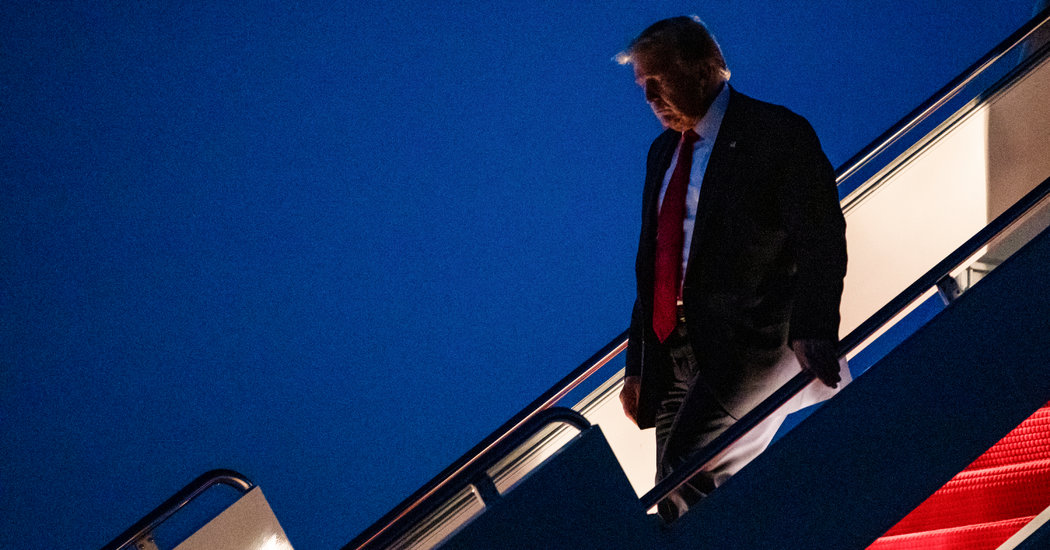US District Judge Allison D. Burroughs announced Tuesday that the Department of Homeland Security has agreed to rescind its controversial new rule that would have prohibited international students taking university courses entirely online during the COVID-19 pandemic from staying in the US.
The parties in Harvard v. US Department of Homeland Security informed the court that they came to an agreement with the government that moots the previous necessity for a temporary injunction. The exact details of the agreement remain unclear. The agreement will, however, mark a return to ICE’s March policy directive. That directive allowed student holders of F-1 and M-1 visas to remain in the US for the duration of the COVID-19 crisis even if they are taking classes exclusively online.
JUST IN: California will become the first state to sue the Trump admin. over guidelines issued this week that bar international students from remaining in the U.S. if they can take classes online, state Attorney General Xavier Becerra says. https://t.co/GEYNo6z4AF
— MSNBC (@MSNBC) July 9, 2020
Reuters is also reporting that a DHS official has said that “the details of any future regulation on this issue remain under discussion,” and that “officials are still deciding whether to treat students already in the United States differently than students seeking to enter the country for the first time.” Traditionally, traveling to the US on a student visa to take only online courses has been prohibited.
Leaders of 12 Christian organizations urged the Trump administration to rescind a policy requiring international students to leave the US or transfer if their colleges hold classes entirely online this fall. https://t.co/TbF9QbSGDe
— Christianity Today (@CTmagazine) July 13, 2020
“The Trump Administration’s sudden reversal, in the face of a court challenge it was destined to lose, is a victory for these students, the colleges and universities at which they learn and the communities to which they contribute,” Feuer said.
On Monday, a coalition of 20 schools, including USC, sued the government in a bid to overturn the policy that would deprive foreign students of their United States visas if their fall classes are held solely online.
USC announced Thursday that international students who need to take an in-person class this fall to maintain their visa status and avoid being deported under the new policy will be able to enroll in the course at no cost.
Trump’s visa-policy reversal means thousands of area’s international students can stay in U.S. https://t.co/SIOfwHj9V7 pic.twitter.com/3HM4AbTtet
— Pittsburgh Post-Gazette (@PittsburghPG) July 15, 2020
The policy, announced July 6, had triggered a wave of distress and outrage prompting Harvard and the Massachusetts Institute of Technology to file a lawsuit, with 17 states, 26 municipalities and many other universities filing amicus briefs or taking similar action. Under the government’s policy, US Immigration and Customs Enforcement (ICE) had also required universities to notify them no later than Wednesday whether they planned to hold classes entirely online this fall.
The past week has been a roller coaster ride for current and prospective F-1 international students. On July 6th, SEVP had announced a new policy prohibiting F-1 students from attending schools that had opted for 100% online courses this fall due to COVID-19 concerns. Lawsuits were quickly filed, most notably by Harvard, which had recently announced it’s plans for 100% online instruction. Because the new policy required schools to take action by July 15th, the judge in the case was expected to make a quick decision on Harvard’s request for a preliminary injunction to block the policy from taking effect.
To everyone’s surprise, yesterday’s court hearing ended quickly with an announcement that a settlement had been reached and ICE would be rescinding the July 6th policy.
Today, ICE has published new guidance regarding how students can maintain F-1 status while courses are online: https://www.ice.gov/doclib/coronavirus/covid19faq.pdf
Here are the key takeaways:
- The new guidance allows F-1 students (both current and new) to study at in-person or hybrid programs in the United States.
- The new guidance allows current F-1 students to temporarily count online classes toward a full course of study in excess of the normal limits (ie. they are continuing the policy announced in March 2020 for current F-1 students https://www.ice.gov/sites/default/files/documents/Document/2020/Coronavirus%20Guidance_3.13.20.pdf)
- The new guidance appears to allow new F-1 students who have already arrived in the US and reported to their school to temporarily count online classes toward a full course of study in excess of the normal limits.
- The new guidance appears to not allow new F-1 students who have not arrived in the US to travel to the US for 100% online programs. Instead, the guidance instructs new students outside the US to remain in their home country. These students may choose to attend the 100% online program remotely from their home country and remain active in the SEVIS system. If lack of technology resources or other issues make the student unable to participate in the online program, the student must work with the school DSO to keep the SEVIS record active and defer the program of study until in-person classes resume.
- The new guidance leaves some unanswered questions about OPT and CPT and indicates that DHS is still evaluating issues such as the 90/150 unemployment limit, hours reduced below 20 hours per week, applying for OPT from outside the US, etc.
- The guidance confirms that CPT, OPT and STEM OPT employment can be remote work.
Source: Trump administration abandons new restrictive student visa policy in face of legal actions







